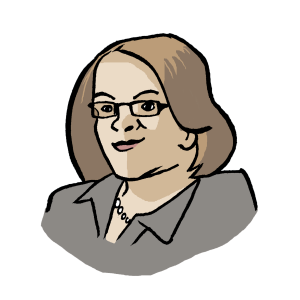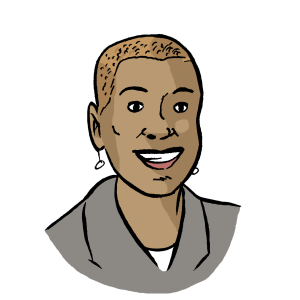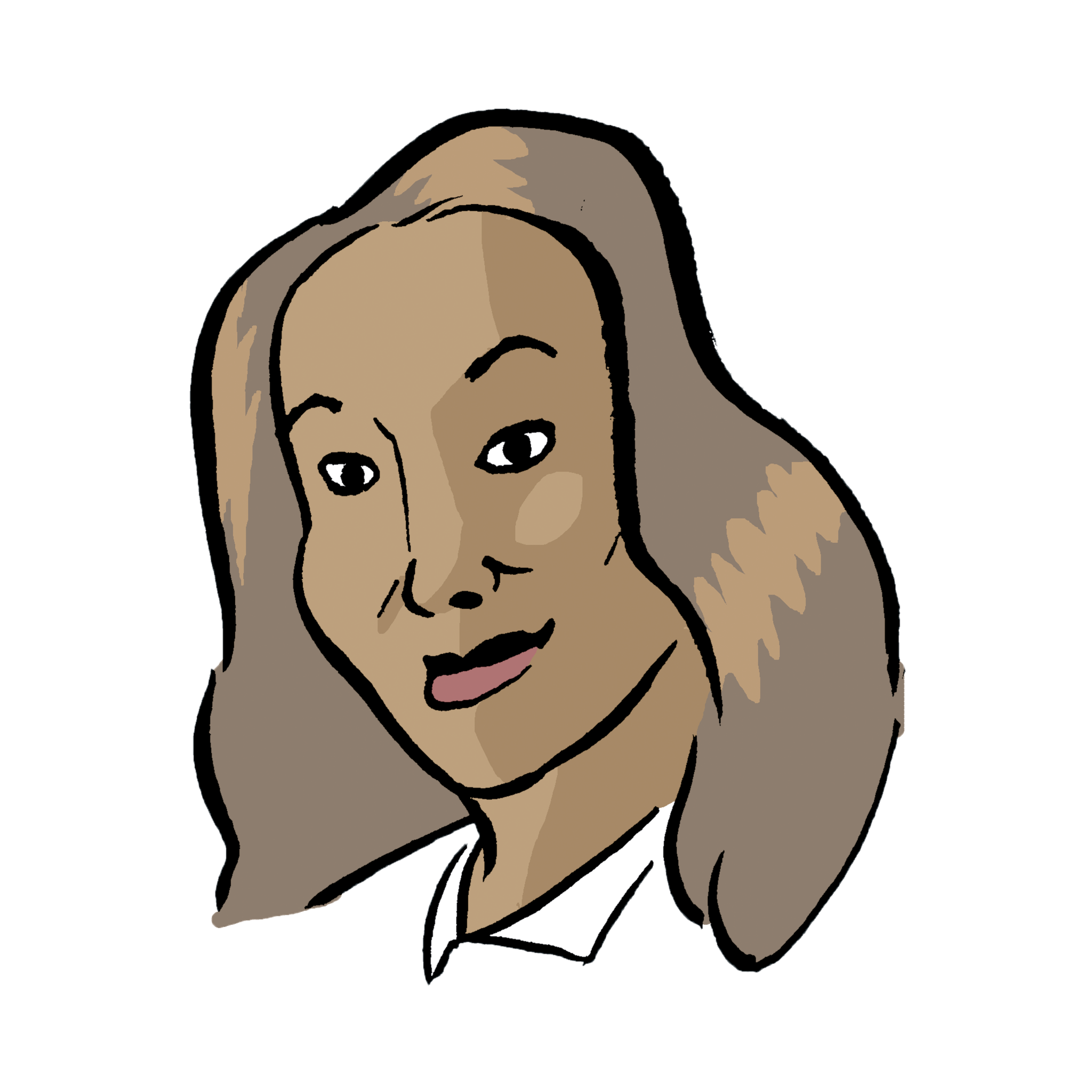As the 5th Ward’s incumbent alderman of sixteen years, Leslie Hairston is no stranger to the perennial blossoming of challengers who loudly critique her rule over this district by the lake every four years.
It was once Oscar Worrill, a city employee from South Shore, who used to alternate between themes of economic development and public safety in his attacks on Hairston during his three separate and consecutive runs for the seat, beginning in 1999. His fundraising was virtually nonexistent, and he never got more than a quarter of the vote against an incumbent whose grip on the ward seemed impregnable in 2007.

Anne Marie Miles followed Worrill in 2011 as Hairston’s most prominent challenger. Miles, an attorney with a largely self-funded campaign, enjoyed ties to the University of Chicago thanks to her marriage to Emil Coccaro, the chairman of the Department of Psychiatry and Behavioral Neuroscience. Miles ran a campaign based on improving the business climate in South Shore but, like Hairston’s previous challengers, barely made any inroads given her opponent’s near-universal name recognition. She earned only a tick over twenty percent of the vote. In a year with unprecedented turnover in the City Council, Hairston’s fuss-free victory was a decisive triumph.
Hairston’s road to another term is far rockier this year. This race has seen a redux of Miles’s campaign, with the same foundation of extensive self-funding and the sounding of familiar arguments based on hopes for a brighter economic future. But it has also seen the entrance of first-time candidate Jocelyn Hare, a fellow at the Harris School of Public Policy who grew up in Champaign, Illinois, and has worked in Gary, Indiana as a consultant for Mayor Karen Freeman-Wilson.
Both candidates have voiced an almost constant stream of criticism of Hairston’s long tenure since the race began in earnest at the turn of the year. Their critiques are not ideological in nature. 5th Ward residents are assured a voice that heavily scrutinizes Rahm Emanuel’s policy agenda in his possible second term.

Hare, just thirty-four, runs a campaign based on a promise to break cleanly from local leadership that is no longer responsive to the political convictions of young people in the ward. Hairston and Miles, she argues, represent an older generation of politicians who do not reflect policy concerns of the ward’s younger residents. “To make really smart policy about education and crime, you have to have the voice of the youth…and I’m way more committed and connected to the youth than either Leslie or Anne Marie are.”
“This may shock you, but you know more about policy than your elected officials,” she recently told a group of young voters at the University of Illinois at Chicago. “We’re going to build a better democracy by regular folks running for office, rather than people who must just have their little fiefdom of power.”
In Hare’s interpretation of the current political landscape, Hairston embodies that fiefdom of power in the ward, her position buttressed by financial interests that are rarely interested in introducing fresh blood into the Council as a goal unto itself. According to Aldertrack, at press time Hare has an estimated $18,093 on hand, roughly thirteen percent of the current $134,158 war chest for Hairston. Hairston’s edge over Miles is smaller, with Miles and her husband having poured in over $30,000 ($35,289 total) of their money into the race.

These large disparities in campaign financing have real consequences on how candidates reach voters. Hairston and her allies have blanketed the ward with at least five separate mailers, most of them touting her ultimately unsuccessful support of an ordinance that would push the city’s minimum wage to fifteen dollars. In contrast, Miles has only released two mailers thus far, and it is unlikely that Hare or any other challenger in the race will be able to reach voters by mail or media advertising before the February 24 election date.
A single mailer to residents in a ward resembling the 5th costs upwards of $15,000, a figure obtained through combing expenditure reports of Alderman Will Burns’s 2011 campaign for the position in the neighboring 4th Ward, also anchored in Hyde Park. Printed matter outreach was minimal for Hairston’s previous campaign.
Fees for printing, postage, mail house services, and media production services can quickly add up, and it is apparent that even the most rudimentary media outreach is prohibitively expensive for candidates without significant financial backing. A campaign war chest like Hairston’s, of more than $100,000, means that candidates are able to do more than just look for free publicity in local media, or rely exclusively on person-to-person outreach.

There are two main sources of Hairston’s fundraising lead. The first reason for Hairston’s continued wealth is Cook County Board President Toni Preckwinkle’s consistent support. Alderman of the neighboring 4th Ward from 1991-2010, Preckwinkle has donated over $18,000 to Hairston, support also accompanied by her well-oiled South Side political organizing.
Hare finds Preckwinkle’s support at odds with political realities in the Ward. “Toni is a loyal person, and she’s committed to supporting Leslie, even if Leslie’s not the best choice for Alderman.” For her part, Hairston defends Preckwinkle’s financial support for her campaign, noting that it is borne only of their “great working relationship.”
The second major source of Hairston’s fundraising lead has been unions: the Chicago Teacher’s Union; Service Employees International Union; and American Federation of State, County and Municipal Employees (AFSCME) make up three of Hairston’s four largest donors. Since the start of calendar year 2014, unions have contributed more than $50,000 to Friends of Leslie Hairston, enough to compensate for her lack of access to the funding of Mayor Emanuel’s Chicago Forward PAC—a super PAC aimed at supporting the administration’s most loyal aldermen.
Union donations to Hairston constitute a sum that alone almost trumps contributions to the rest of the 5th Ward field. Outsized union influence can also be seen elsewhere this year. All eight other members of the Progressive Caucus have seen an influx of union donations that ensure they have the most cash on hand in their respective races, inoculating them from the barrage of negative ads that accompany their defiance of Mayor Emanuel’s policy desires.

Hare thinks that union loyalty to Hairston is unsurprising yet undeserved, given that Hairston’s consistent support for unions has not translated into any effective policy change. Although Hare has laid out pro-union positions, she is nevertheless frustrated at how large union contributions end up perpetuating the political status quo in Chicago. “Nobody from AFSCME has ever talked to me,” she says. “They don’t even give a chance to the challengers.”
Miles goes even further than Hare in criticizing the role of union money in the race, explaining that Hairston’s marriage to union interests will be relevant to the pension debates set to occur at some point in the next four years. To her, Chicago’s public pension debt and the polarized political debate that surrounds it create uncertainty that jeopardizes the economic well-being of the city. With an overwhelming concern for the city’s municipal bond rating, Miles insists that re-electing someone who “voted for pension politics” would only prolong the prevailing economic hurt: “I think [union support] can backfire for her in this ward,” she says.
Yet, in these municipal elections, it is not simply union support, ties to financial interests in the Loop, or the endorsement of powerful political figures like Preckwinkle and Emanuel that ensure that certain candidates enjoy financial advantages over others. It’s a simple calculus: incumbency status in Chicago is by far the best predictor of a candidate’s financial position, controlling for other considerations like race, ideology, and geography.
By and large, the forty-three other incumbents in the city running for election have access to funds that will almost certainly be unavailable to their challengers. Incumbency status alone explains almost half of all variation in the amount of money that a candidate receives in that election cycle, far outstripping any other salient factor that distinguishes candidates from each other.
As such, Alderman Hairston’s significant financial advantages are simply in keeping with citywide political realities—realities that Anne Marie Miles believes necessitate a systematic solution. Miles is a strong proponent of the public financing of campaigns in Chicago, a proposition that is admittedly unlikely to become a reality even if Miles and like-minded challengers are to be elected, given the huge benefits that non-private financing currently accord to the members of the City Council.
Still, there is hope for Miles and Hare. For one, Alderman Hairston’s fundraising in this cycle is underperforming a baseline established by her previous runs for office. At this point in the election cycle four years ago, at a time when the economy was far worse and when Hairston was not widely expected to be in a competitive race, she raised over $180,000—only slightly below her 2015 level, even though she is currently engaged in her toughest race since her initial election.
Compounding the relative disadvantage that Alderman Hairston suffers compared to the forty-three other incumbents currently running for election is the fact that incumbents in black-majority wards in the South and West Sides enjoy a much smaller advantage than their colleagues in the other parts of the city. A wider look at South Side campaign financing hints at a few potential upsets threatening long-established incumbents. The 9th Ward’s Anthony Beale, first elected in 1999, has only slightly more than double his closest challenger’s cash on hand; the 21st Ward’s Howard Brookins, first elected in 2003, has not yet cleared the $100,000 mark.
This might suggest that groups looking to upend the city’s prevailing political order might be well-served by directing funds toward challengers running against relatively cash-poor incumbents, in wards where every dollar donated goes further than far more expensive North and Northwest Side races.
This close to the election, however, those hypotheticals likely matter very little to the three candidates jockeying to represent the 5th Ward. In typical Chicago fashion, campaign rhetoric in this race often teeters into vitriol.
Hairston takes pains to highlight that Miles has been endorsed by the 5th Ward’s Republican committeeman, and that her campaign is being run by Core Strategies, a consulting firm dedicated, primarily, to getting more Republicans elected. Although this is officially a non-partisan primary, Miles is running as a Democrat. Tom Bowen, once a close aide of Rahm Emanuel, is running Hare’s campaign, an indication to Hairston that Hare’s lackluster fundraising hasn’t prevented the challenger from contracting expensive consultants.
Hare paints Miles as part of the 1%, and insists that Hairston has not done nearly enough to bridge the “huge and clear” divide between Hyde Park and South Shore, the product of Chicago’s history of racialized segregation, during her time as the ward’s alderman.
And Miles reserves harsh words for Hairston’s conduct during the campaign, accusing her of violating campaign laws by including campaign literature in her ward newsletters. “I was dismayed to find that she, as an attorney, would behave so unethically,” Miles says. To her, Hairston’s tactics in this election are simply a continuation of previous transgressions, most notably the alleged vote-buying in November 2014’s elections that is the subject of an ongoing criminal investigation. Then, she linked casting a vote in the federal general election to raffled-off prizes, a short-lived attempt to boost turnout numbers in the ward.
Money is not determinative in the 5th Ward race, and there are numerous examples of challengers overcoming financial odds stacked against them to ascend to the City Council. Mailers slipped under doors and people stationed on street corners to spread the good news are the product of Hairston’s financial advantages, and will certainly offer her a huge edge in name recognition that her challengers can not hope to match in a low-turnout election. But in the last stretch of this race, that money will also have to be in support of a message that paints a rosy future for the 5th Ward if Hairston hopes to avoid a runoff in the toughest race of her career.


I’m so glad you wrote this. I’ve been astounded at how Leslie is receiving so many endorsements that she doesn’t deserve. Nobody is pointing out that she has NO vision for our ward. She is least imaginative and second-least interesting person on the ballot. She brings up the Starbucks on Stony as her one accomplishment in South Shore as if that is still relevant. ONE coffee shop? I really hope she leaves this year.